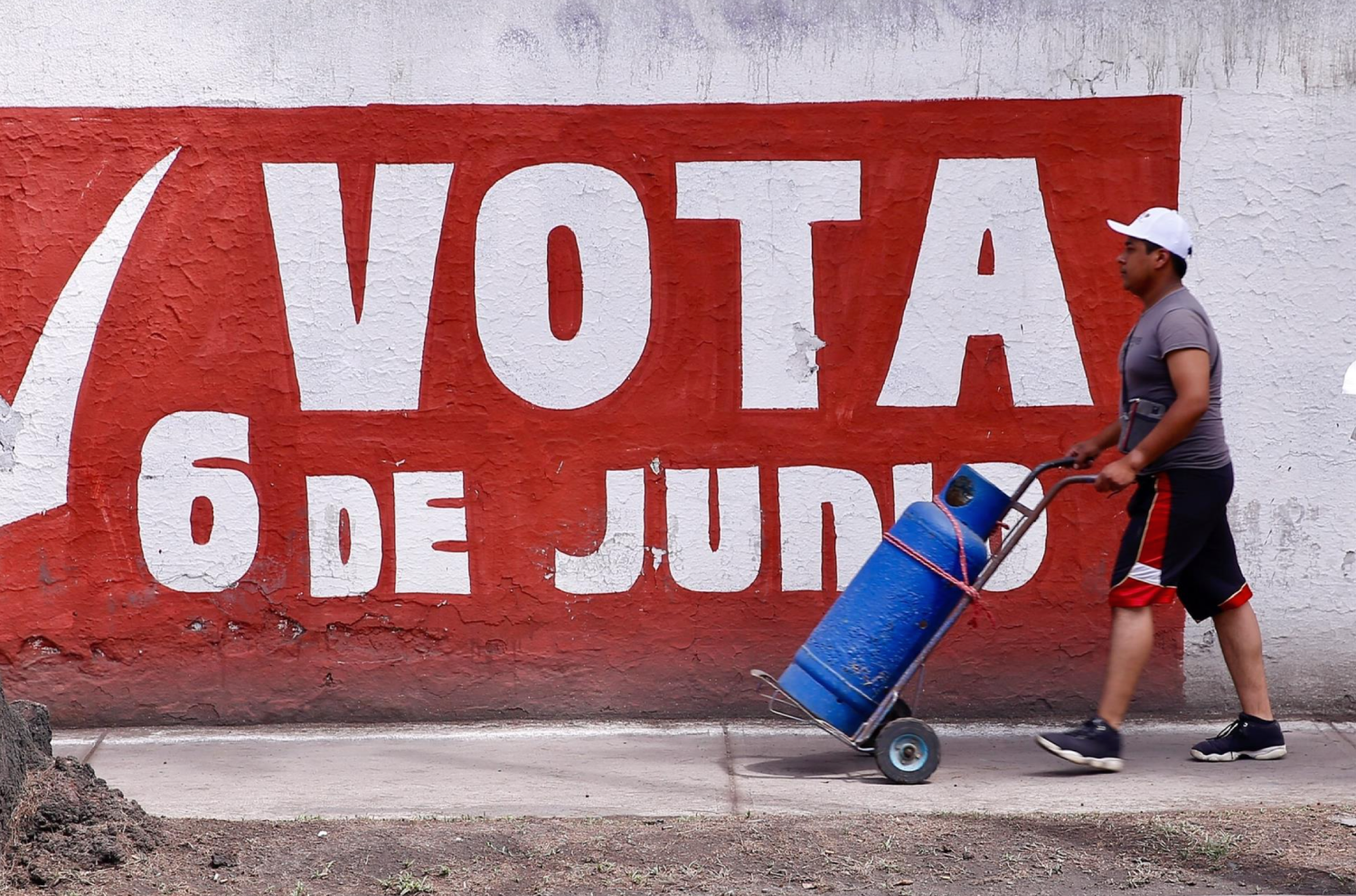Next June 2, in Mexico, it will not only be at stake who will represent the population. Mexico’s largest election in its history could also define the pulse and course of a form of government in crisis globally: democracy. The democratic electoral process is ideally conceived as an exercise that requires the coordination of, on the one hand, committed candidates who elaborate proposals, attend to the interests of the population, deliberate on alternatives and debate their initiatives; and, on the other hand, an informed citizenry, interested in questioning and debating, obliged to, in effect, make a choice.
Faced with this ideal, the question arises: how is this democratic process unfolding, and under what circumstances is it taking place?
Both globally and in our latitudes, the outlook for democracy is not favorable. This system is experiencing a wave of distrust and is losing ground worldwide to autocratic regimes. Numerous indicators show that Mexico is among those nations that recently have developed authoritarian tendencies.
For many, this is evidenced by the lack of tolerance for divergent opinions, the lack of openness to citizen participation in democratic deliberation, the lack of justified reasons for political actions and decisions, as well as the obscuring of the plurality of perspectives through polarization. To this should be added the unfortunate security situation that candidates and actors related to electoral authorities live in this country. Attempting against the integrity of political actors is also an attack against democracy itself.
The deterioration of these aspects not only undermines the pulse of democracy in this nation, but also calls into question its future direction. These are just some of the political conditions for the upcoming elections, where the race for the presidency becomes the most important. Now, what implications would the election of one or the other candidate represent for the presidency of Mexico and for its democracy?
Claudia Sheinbaum is the candidate of the ruling party. Her candidacy represents political continuity for the country, reinforcing the themes of her predecessor: the focus on reducing corruption, the fight against tax evasion, the consolidation of strategic projects such as the Mayan train. Likewise, she puts forward proposals that would represent a step forward, such as the creation of specialized prosecutors for femicides, in addition to suggesting to send to Congress a proposal to upgrade to constitutional status the substantive equality of women in all its forms, as well as the right to a life free of violence and the eradication of the wage gap.
If consolidated, the latter would represent a real advance in democratic terms, by guaranteeing greater equality. But, in general, his election would mean a continuation of the political trend, which could also mean the continuity of the decadence of the current government, and probably of its inclination toward authoritarianism, marked by a discourse that polarizes and divides, between opponents and followers, between “neoliberals” and “Mexican humanists”.
Candidate Xóchitl Gálvez also participates. Her proposals have focused on the security issue. With this, she has succeeded in dealing with the most worrying and sensitive issue of the present administration: violence in Mexico. Among her proposals is the restructuring of the National Guard, moving it away from civilian affairs and toward a different way of exercising public force. This would mean a very healthy demarcation between public powers for democracy.
Concerning her campaign, according to what INE reports, Gálvez has favored direct dialogue with other sectors by holding various forums, unlike Sheinbaum, who has focused more on rallies with supporters. In this sense, the forums favor a more genuine democratic dialogue. However, an important part of Gálvez’s discourse has been dedicated to disqualifying the competition instead of deepening her proposals and enriching the discussion.
Also participating is candidate Jorge Alvarez, who proposes himself as the “change” as opposed to what he calls “old politics”. If he represents a real change, his election could have direct implications for democracy, since it could mean reversing the authoritarian attempts of the current government. He also proposes a reform in security issues and a profound reform in judicial matters. In his campaign, he has shown himself open to dialogue, mainly with university students, an aspect that could be considered favorable for democracy.
The upcoming election, marked by a crisis in the government system, will not have minor implications. It is essential to continue contrasting the alternatives and evaluate which would represent the best choice. It is not enough to blindly take sides; proposals and campaigns must be monitored since how the candidates present their political platforms may be a foretaste of how they would structure their government.
Which proposal is more conducive to democracy, promoting dialogue, and guaranteeing the equality and liberties of citizens? Which of the alternatives could lead the nation out of this crisis in the system of government? The date is approaching, and the election, as well as the course of democracy, is in the hands of all of us.
*Translated by Janaína Ruviaro da Silva from the original in Spanish.













